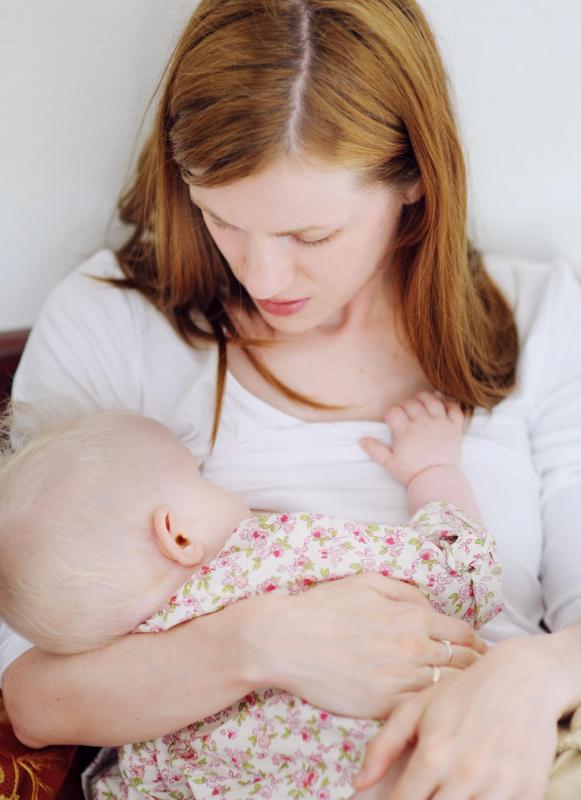At WiseGEEK, we're committed to delivering accurate, trustworthy information. Our expert-authored content is rigorously fact-checked and sourced from credible authorities. Discover how we uphold the highest standards in providing you with reliable knowledge.
What Should I Expect from Menstruation After Birth?
Menstruation after birth differs among women, and may be heavier or lighter, be more or less associated with premenstrual symptoms, and fluctuate in the times at which it resumes. Menstruation should be differentiated from the bleeding that women experience right after birth, which represents cleansing and healing of the uterus. It’s worthwhile to understand this process, called lochia, because unusually heavy bleeding during this time can signify problems.
The bleeding that occurs right after birth is really not considered menstruation because it doesn't occur after ovulation. In the first days after birth it tends to be heaviest as the uterus continues to contract. This bleeding should gradually lighten, though it may become heavier during activity. Any bleeding that is bright red in color or that begins to saturate more than one pad an hour is considered hemorrhaging and needs immediate medical attention. Typically, postpartum bleeding ends four to six weeks after the end of the pregnancy and it should be discussed with a doctor if it continues.

True menstruation after birth may not return for a while once this post-pregnancy bleeding has ended. Breastfeeding exclusively tends to limit chances that a cycle will be re-established right away, though this is not always the case. A breastfeeding mom might not experience a period for six months to a year while nursing. This varies and some mothers return to their regular menstruation even if they’re nursing a baby round the clock, within two to three months of the pregnancy’s end.

Mothers who are not nursing tend to have the earliest return to a regular period. They may begin regular menses two to three months after the end of pregnancy. There are plenty of examples that menstruation can return in as little as a month after childbirth.
Some women also note differing qualities to menstruation. It’s possible for menstruation after birth to be heavier. Other times, periods are lighter than they used to be. Alternately, timing of periods may be altered, and women could get them farther apart, closer together, or more regularly or irregularly than in the past.

Differences in premenstrual or menstrual symptoms may be noted after childbirth. A few women find that issues like irritability have either increased or decreased after pregnancy. Other symptoms like breast tenderness, bloating or headaches may be better or worse when menstruation returns after giving birth Experts suggest that most women will not note many changes in flow, regularity or premenstrual symptoms and simply return to their regular period schedule.

Many women do experience a gap between end of pregnancy and resumption of periods, but this isn't necessarily the absence of fertility. Some women experience what is called a warning period prior to resumption of ovulation. Other times the first menstrual cycle after birth means ovulation has already occurred, making it possible to get pregnant prior to having a first period. Birth control should be used to avoid unwanted pregnancies.
AS FEATURED ON:
AS FEATURED ON:














Discussion Comments
The article helped me a little bit, but I am still curious as to what color the first period is supposed to be. Is it supposed to be bright red or a dark red, or is it supposed to vary between both dark and bright red. Can someone help me with this?
Post your comments